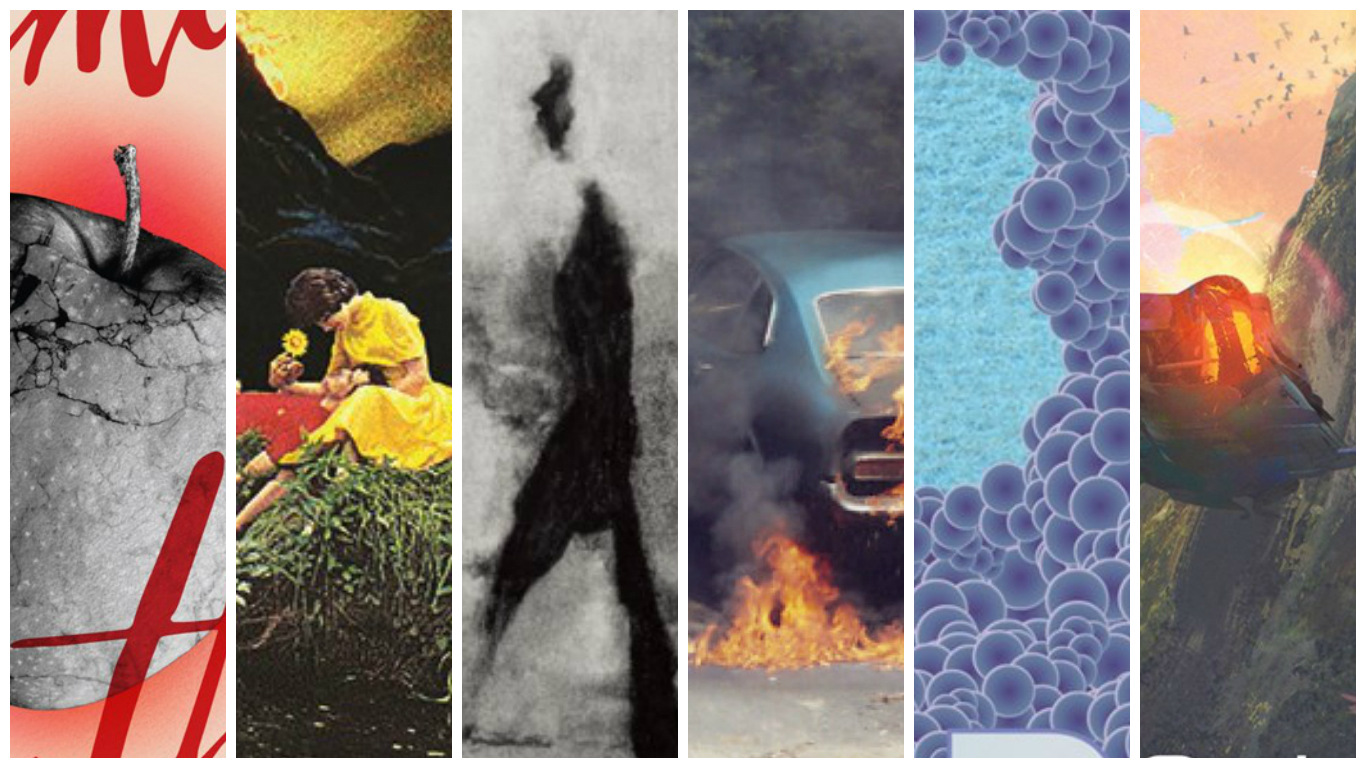
2016 will be remembered for many reasons, one of which—I hope—will be its sheer volume of era-defining fiction. This year, novelists and short story writers confronted climate change, LGBTQ rights, US immigration, the legacy of slavery, and the populist backlash to globalization, among other pressing concerns. These authors aren’t interested in escapism—in the war against complacency, they are the tip of the spear. Here are our favorite fiction books of 2016, including 10 published by independent presses.
Editor’s Note: The inclusion or absence of a book on this list has no bearing on the Chicago Review of Books Awards to be announced on Thursday. Only three of the 16 award judges were consulted for this round-up.
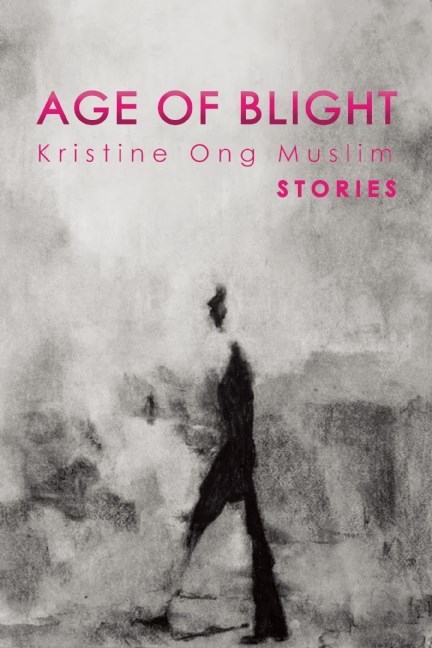 Age of Blight by Kristine Ong Muslim
Age of Blight by Kristine Ong Muslim
Unnamed Press, January
Age of Blight was the first book I read in 2016, a perfect escape from the longest nights of the year. Over at Electric Literature, I called it “haunting, fearless, and wildly imaginative. In spare, deceptively simple prose, Muslim writes the kind of unpredictable stories you want to re-read the instant you finish. It’s a difficult book to classify; it is ‘literary’ ‘horror,’ ‘science fiction,’ but more than anything, Age of Blight acts as a ruthless look in the mirror.” —Adam Morgan
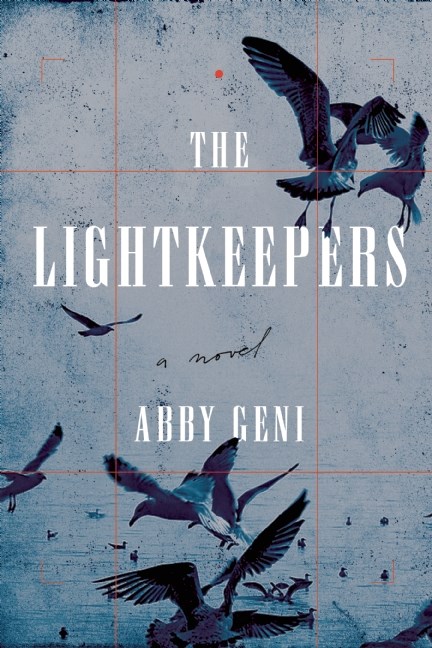 The Lightkeepers by Abby Geni
The Lightkeepers by Abby Geni
Counterpoint, January
From our Chicago Review of Books review: “When a nature photographer, Miranda, arrives for a year-long stint to capture the local wildlife, she’s stunned by the surreal nature of the place. ‘I am half-convinced the islands are not rooted at all,’ she says, ‘but move around whenever my back is turned, taking up brand-new positions elsewhere.’ The Lightkeepers is similarly chimeric, constantly shifting from mystery to travelogue to natural horror and beyond. For the first one hundred pages, Geni is content to build tension and atmosphere through pure, distilled prose, forgoing any direct attempts to kickstart the plot. And then, violence. In the end, Geni’s transcendent novel is as merciless, strange, and coldly beautiful as the islands she describes.” —Adam Morgan
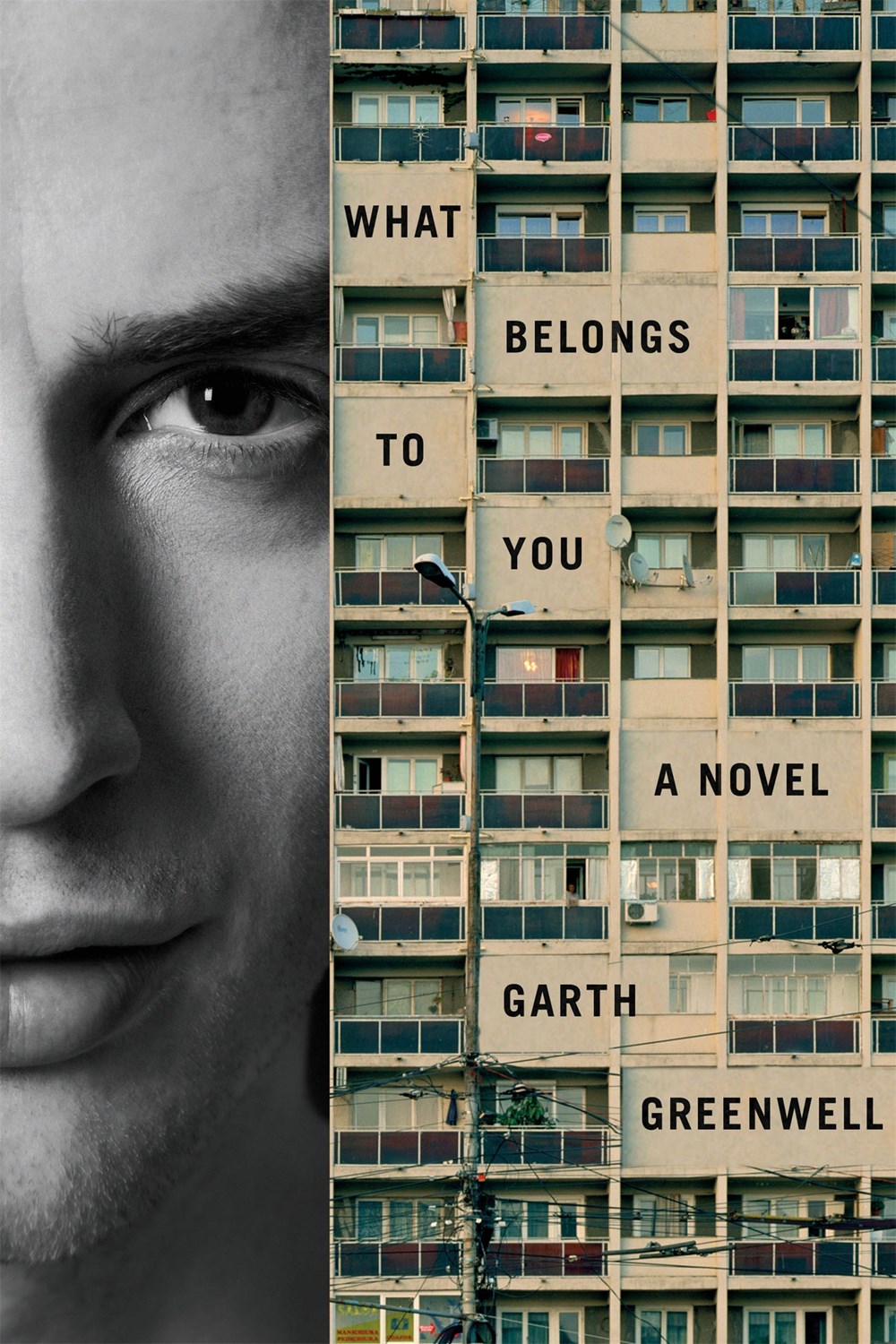 What Belongs to You by Garth Greenwell
What Belongs to You by Garth Greenwell
Farrar, Straus and Giroux, January
If there’s one book I’m most disappointed the Chicago Review of Books wasn’t able to cover this year, it’s Garth Greenwell’s devastating debut novel (we launched a few weeks after it was published). Luckily, plenty of other publications have given What Belongs to You the praise it deserves, including comparisons to Mann and Nabokov. Not every writer can pull off long, architectural sentences that nestle into one another like Russian dolls, but Greenwell is not every writer. I can’t wait to see what he does next. —Adam Morgan
 A Collapse of Horses by Brian Evenson
A Collapse of Horses by Brian Evenson
Coffee House Press, February
From our Chicago Review of Books review: “Unanswerable questions and unforgettable images are at the heart of every Brian Evenson story. If you haven’t read any of his fiction yet, you need to get your shit together … His prose is unmistakable, often exploring the darker side of humankind’s subjective, easily confused condition … A Collapse of Horses, is another fascinating, ruthless volume of weird fiction. Like his landmark collection Fugue State, at times the stories feel like a sudden onset of schizophrenia.” —Adam Morgan
 Septimania by Jonathan Levi
Septimania by Jonathan Levi
Overlook Press, April
Septimania blew me away. “Jonathan Levi’s first novel since 1992’s A Guide for the Perplexed won me over in chapter one,” I said back in April. “Thanks to a fateful meeting in St. George’s Church, Whistler Abbey in 1978, a young Cambridge history scholar discovers he is the heir to a secret kingdom with the power to select popes, influence international affairs, and a vast library hidden beneath the hills of Rome. Intellectually fascinating and emotionally powerful, the tale that follows is a poignant meditation on youth, love, myth, history, and quantum theory.” —Adam Morgan
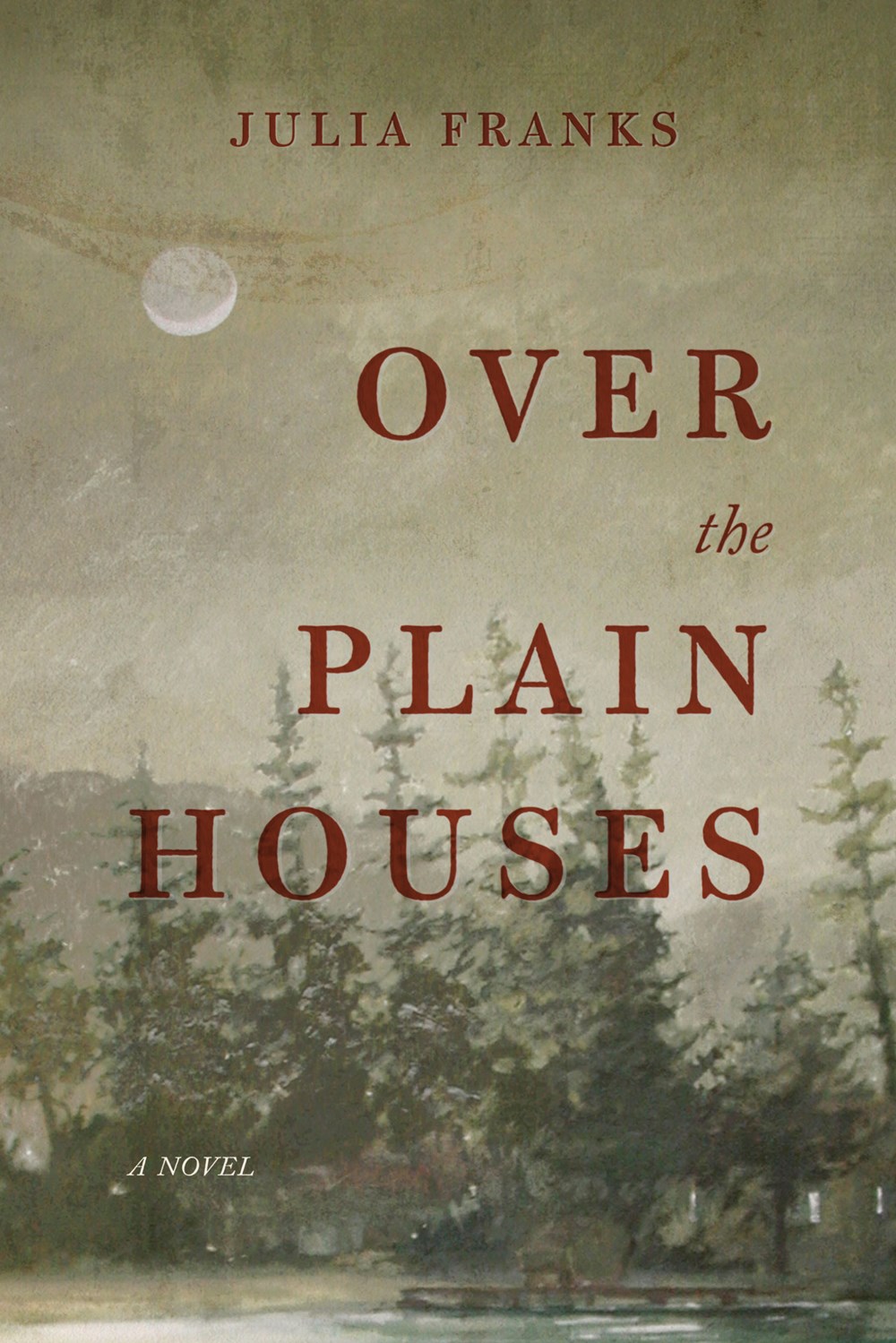 Over the Plain Houses by Julia Franks
Over the Plain Houses by Julia Franks
Hub City Press, May
This small-press gem from South Carolina is filled with the most beautiful prose I read this year, and is surely one of the most confident, mature debut novels of the century so far. It’s like The Witch meets Ron Rash—a gorgeous, creepy Southern Gothic tale set in the Blue Ridge Mountains of North Carolina at the tail end of the Great Depression. The sense of place is visceral, the characterization is masterful, and one can only hope Franks has another novel (or twelve) within her. —Adam Morgan
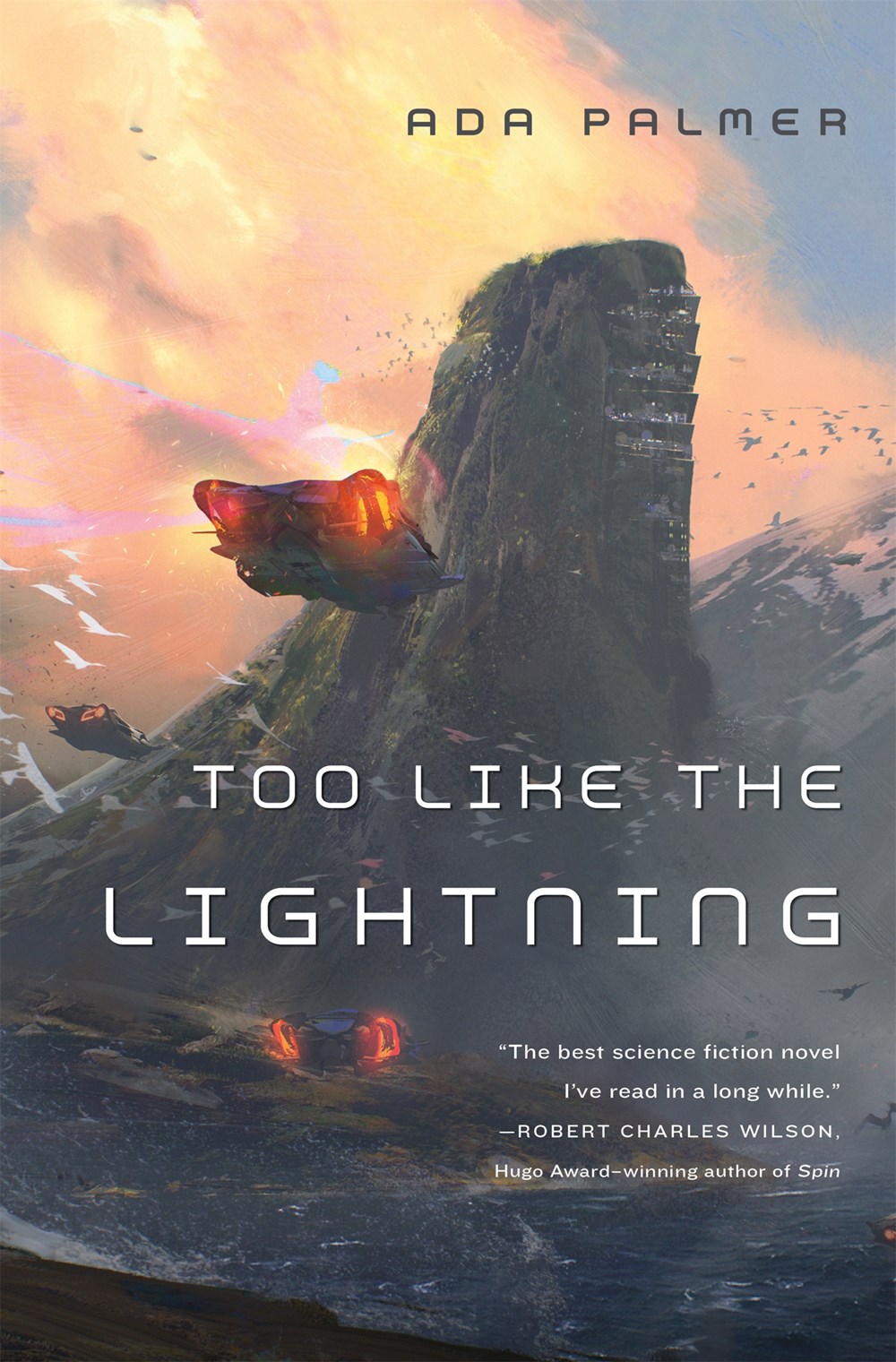 Too Like the Lightning by Ada Palmer
Too Like the Lightning by Ada Palmer
Tor Books, May
Science fiction written in the vernacular of the Enlightenment? Sign me up. In the words of our own Sara Cutaia: “Too Like the Lightning simultaneously dips its toes in the past and soars into the future, bathing in the imaginative possibilities of technology and society, revealing how even the smallest shifts can destabilize a utopia. Bursting with historical and classical allusions, Palmer’s political and social commentary is as astute as one would expect from a scholar. At times, her prose can be daunting, but the reward—a host of fascinating ideas—makes the book well worth the discipline required to finish it.” —Adam Morgan
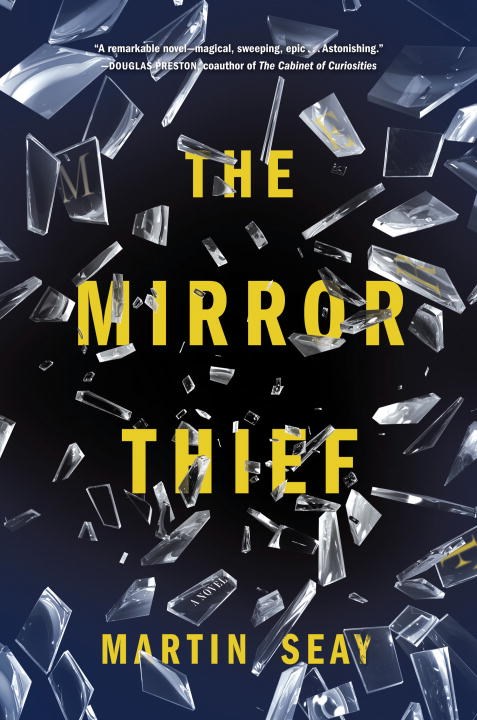 The Mirror Thief by Martin Seay
The Mirror Thief by Martin Seay
Melville House, May
Three different Venices. Three different time periods. 600 pages. Martin Seay’s debut novel is the weirdest, most ambitious thing I read this year. It shouldn’t work, but it does. For every 50 pages, I spent at least an hour on Wikipedia in a desperate attempt to keep up with Seay’s intellect. I failed, of course, but I came away from the book feeling like I’d truly experienced something. —Adam Morgan
 Some Possible Solutions by Helen Phillips
Some Possible Solutions by Helen Phillips
Henry Holt, May
It’s hard to categorize Some Possible Solutions, but I suppose “speculative fiction” will do. Even that term isn’t quite right, because these strange stories about falling in love, knowing the future, and mourning the dying of the Earth are as deeply rooted in our own world as the imaginary ones Phillips has created. Beguiling and beautiful, this collection balances the uncanny with knowable feelings of pain and hope to form one of the most compassionate reads of the year. —Amy Brady
 You May See a Stranger by Paula Whyman
You May See a Stranger by Paula Whyman
Northwestern University Press, May
There were a lot of excellent short story collections published this year, but my favorite remains Paula Whyman’s You May See a Stranger. The ten interconnected stories center around the life of the protagonist, Miranda Weber, following her through a range of emotions and experiences from adolescence to the brink of menopause. Miranda reckons with racial tension, the fate of her disabled sister, crime and terror in D.C., marriage, and the terrors of raising a teenage daughter. Whyman is a strong writer and her novelistic book is astute, poignant, and despite the darker moments, full of humor. Whyman’s writing has drawn comparisons to Lorrie Moore for being a serious writer who is also funny, but her debut book marks her as a unique new voice in fiction. —Rachel León
 Homegoing by Yaa Gyasi
Homegoing by Yaa Gyasi
Knopf, June
Even the premise of Yaa Gyasi’s debut novel sounds ambitious; Homegoing is the 300-year familial journey of a Ghanan family, beginning with two sisters whose lives veer off in vastly different directions. One marries an Englishman and the other is sold into slavery. The structure of the novel will inevitably frustrate some readers—the chapters alternate between the sisters and their descendants and only offer a snapshot of their lives—yet it’s the structure that makes this novel such an achievement. Gyasi makes the unconventional structure work with compelling storylines featuring characters that are so unforgettable it’s difficult not to remember them as the story moves on to the next generation. Homegoing is an artful examination on culture and family, time and fate. —Rachel León
Heartbreaker by Maryse Meijer
Farrar, Straus and Giroux, July
In her dark, violent, envelope-pushing debut story collection Heartbreaker, Maryse Meijer cuts through the mundane and the taboo with the sharpest of knives. She writes fearlessly about love and family, fear and violence, the fantastical and the Gothic. These 13 stories, written with conviction and urgency, offer a fresh take on every type of person: obese, unhinged, feral, cruel, deformed, and obsessed, all on paths of self-destruction. Meijer’s prose is at once unrestricted in scope and uncomplicated in its ease. With honest and brittle characters, Heartbreaker is a unique and powerful look at the broken and the still-fighting. When hidden demons come to light, you may be surprised to find they look a lot like you. —Sara Cutaia
 The Underground Railroad by Colson Whitehead
The Underground Railroad by Colson Whitehead
Doubleday, August
I know…this book is already 2016’s most-celebrated and doesn’t need any further help from me. But it truly deserves all the praise, and not enough attention has been given to the novel’s speculative nature—not just the literal subterranean railroad, but also an alternate-history version of the South, where skyscrapers rise above South Carolina. As Aaron Coates said earlier this year “from forced sterilization and secret syphilis trials to the revelation of current police brutality against black people, Whitehead seamlessly ties the past to the present, turning history into a visceral experience that cannot be ignored.” —Adam Morgan
 Good Morning, Midnight by Lily Brooks-Dalton
Good Morning, Midnight by Lily Brooks-Dalton
Random House, August
“The end of the world seems so imminent these days,” said Sara Cutaia back in August. “In book after book, authors imagine exactly how it might happen, but Lily Brooks-Dalton is less concerned with cause than effect. Her new novel, Good Morning, Midnight, examines the depth of humanity and the inner reflection one might experience when faced with ‘the end.’ When the world goes dark, aging scientist Augustine is alone in the Arctic, while Sullivan and her team are returning from a space expedition to Jupiter. Brooks-Dalton switches between the two narratives, stretching and flexing her literary prowess by describing both settings with intimate and beautiful prose, exploring just how expansive human resiliency can be.” —Adam Morgan
 A Tree or a Person or a Wall by Matt Bell
A Tree or a Person or a Wall by Matt Bell
Soho Press, September
The last time Matt Bell released a book with a longish compound title (In the House upon the Dirt between the Lake and the Woods) I was blown away, and this collection of his short fiction (A Tree or a Person or a Wall) was no different. The title story, about a boy held captive in a dark room with an albino ape, sets the tone for Bell’s signature brand of weird. Every story is fantastic, but the other standouts are Cataclysm Baby, a novella that follows twenty-six fathers after an enviromental disaster, and “Dredge,” about a man who discovers the body of a dead girl and tries to track down her killer. —Adam Morgan
 Of This New World by Allegra Hyde
Of This New World by Allegra Hyde
University of Iowa Press, October
Allegra Hyde’s debut collection introduces us to characters of every era and background that all seem to be reaching for a second chance. From the Garden of Eden to the fledgling colonies of Mars, these stories wrestle with finding that ideal starting-over point and the fundamental question about the existence of paradise. Many of the stories in this collection deal very specifically with paradises (either in a struggle to create it or watching it crumble), however Of This New World finds its life in the hearts of those who seek redemption. Hyde never relents in her use of language or evocation of emotion, earning her John Simmons Award for Short Fiction and claiming her rightful place as a new voice in the literary world. —Sara Cutaia
 The Show House by Dan Lopez
The Show House by Dan Lopez
Unnamed Press, December
The Show House isn’t quite like anything I’ve read before. It’s easy to call it a literary thriller—it features a serial killer who targets gay men in nightclubs—but it’s much more than that. It’s a compelling examination of relationships between spouses, siblings, and parents and children. The Show House is everything I want in a novel—smart, dark, poignant, funny, well-written, and richly layered—making it one of the best books I read this year. —Rachel León
Adam Morgan is the founding editor of the Chicago Review of Books and the Southern Review of Books. His essays and criticism have appeared in The Paris Review, Los Angeles Times, Chicago Tribune, Chicago magazine, and elsewhere.





does this even work
I’ve just discovered your site because I was looking for book lists that included Good Morning, Midnight (which I LOVED), every single book on this list is either something I’ve read and loved, on my to-read list or something I haven’t heard of and sounds amazing! I think I just found my new favourite book review site!